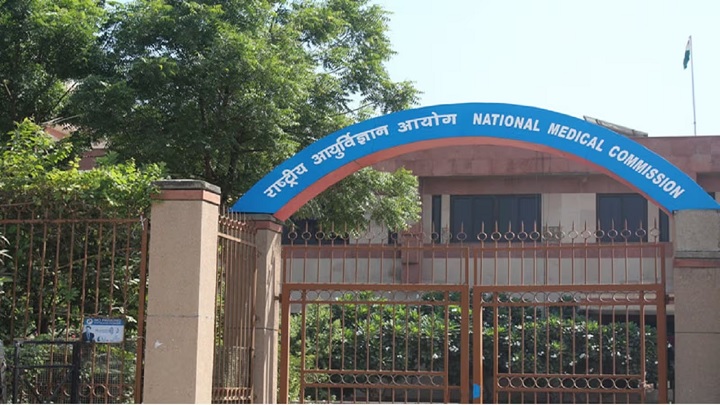National Medical Commission had recently asked doctors to prescribe generic drugs instead of branded drugs or face penalties.
New Delhi
The National Medical Commission (NMC) has put on hold, with immediate effect, its recent regulation mandating doctors to prescribe only generic drugs or face punishment.
The NMC had recently asked doctors to prescribe generic drugs instead of branded drugs or face penalties. These regulations had made the Indian Medical Association (IMA) raise concerns.
A government doctor said: “Big companies pay in cash and kind, give gifts, and sponsor programmes for the doctors in exchange for them prescribing their drugs. There is always an MR (medical representative) standing outside the office for meetings with doctors. Most of the time, those prescribed medicines were only available in the pharmacies in and around that doctor’s clinic. The cost of these medicines is higher than the same ones produced by reputed pharmaceutical companies.”
Medical representatives from these big firms also plan their family holidays, parties, and conferences, he added.
According to doctors, there are hundreds of brands that will have the same salt, but who will judge which one is genuine? So, there is a high chance the pharmacy will provide the patient with the medication that will profit them more. Doctors maintain that 99% of doctors don’t get any benefits for prescribing any medicine apart from getting a pen and notepad.
Former IMA president Dr Rajan Sharma said: “We agree to any regulation that is for patients’ benefit, but may I ask who gives permission for all the so-called branded companies to make drugs and market them under their own brand name? It is the Government of India, so the IMA or the doctors have no role to play in it. Blame is being put on the doctors, which is condemnable and not palatable because we are never involved in the pricing of the drugs, their permissions, or stopping them from being included in the essential drugs list, and the prices are regulated by the government.”
Responding to a question of how he sees the current regulation that has now been put on hold, he said: “I don’t see any logic in such a move; how are they going to meet the requirements?”
As per the NMC’s new regulation, now put on hold, doctors can face licence suspension if they do not prescribe generic drugs. Currently, there are a few generic medicines available on the market, and most of them are branded generics.
A generic drug is a medication created to be the same as an already marketed brand-name drug in dosage form, safety, strength, route of administration, quality, performance characteristics, and intended use. A drug sold by a drug company under a specific name or trademark is protected by a patent. Brand-name drugs may be available by prescription or over the counter.
The difference between brand-name and generic drugs is in the circumstances of producing the drugs. While brand name drug refers to the name given by the producing company, generic drug refers to a drug produced after the active ingredient of the brand name drug. Generic drugs will, however, be sold under different brand names but will contain the same active ingredients as the brand-name drug. But with regards to the effectiveness of the drugs, generic drugs have the same quality active ingredient as brand-name drugs.
According to the NMC’s new regulation that has been put on hold, incorporating the telemedicine prescription guidelines restricts Registered Medical Practitioners (RMP) from getting involved in any third-party educational activity like continuing professional development, seminars, workshops, symposia, and conferences that involves direct or indirect sponsorships from pharmaceutical companies or the allied health sector.
The NMC has said: «India’s out-of-pocket spending on medications accounts for a major proportion of public spending on health care. Further, generic medicines are 30% to 80% cheaper than branded drugs. Hence, prescribing generic medicines may overtly bring
The RMPs should advocate for hospitals and local pharmacies to stock and prescribe generic drugs that are available on the market and accessible to the patient, stated the order.
Leena Singh, a 42-year-old diabetic patient, said: «I am aware of the MR (medical representative) concept that doctors are getting some sort of favouritism like gifts, junkets, etc. from pharma companies, and that is the reason why they promote particular medicines from particular companies, but I’m also sceptical about the fact that, as a patient, how will I decide which brand drug will suit me and who will be accountable if a particular medication show any side effects?»

